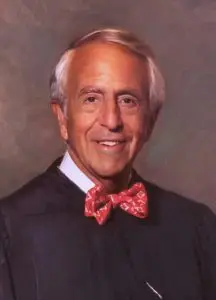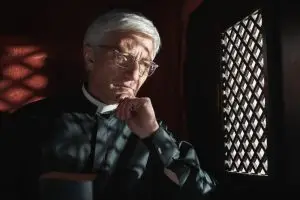In recent years, the church-planting movement—a network of churches dedicated to spreading evangelical Christianity across the United States—has come under intense scrutiny due to allegations of sexual and mental abuse. The state of Texas, in particular, has been the epicenter of these accusations, though similar cases have surfaced in other parts of the country.
This network of churches, often built on the rapid establishment of new congregations, emphasizes strong leadership, discipleship, and a culture of obedience. However, this culture, which discourages questioning leaders, has allegedly fostered environments where both sexual and mental abuse have occurred.
The Church-Planting Movement and Its Philosophy
Church planting refers to the establishment of new, autonomous churches, typically in areas where there is a need for evangelical outreach. Rather than starting new congregations that are part of a larger denomination, many of these churches operate under loose networks or partnerships with other church plants.
The goal is often rapid growth, and the leaders are typically seen as charismatic figures who not only preach but also guide the spiritual and personal lives of their congregants. Church planting has been particularly popular in non-denominational Christian communities, where churches often operate independently or with minimal oversight from larger bodies.
Emphasizing having a personal relationship with Jesus Christ, active discipleship, and a focus on converting non-believers, the church-planting network views pastors and church leaders as spiritual authorities who act as God’s representatives on earth.
This emphasis on leadership and obedience has been described by many as a double-edged sword. On one hand, it can create strong, united communities with clear missions. On the other, critics argue that it often fosters environments where congregants are discouraged from questioning authority, leading to unhealthy power dynamics. This power imbalance has been cited as one of the root causes of the abuse scandals now rocking the movement.
The Culture of Obedience and Silence
One of the defining features of the church-planting movement is the hierarchical structure, where church leaders wield considerable authority over their congregants. This culture of obedience is heavily reinforced through sermons, Bible studies, and personal guidance. Members are often encouraged to place their trust in church leaders as spiritual guides, believing that questioning authority equates to questioning God’s will.
In this environment, victims of abuse—both sexual and mental—have described feeling powerless to speak out. Many fear being ostracized from their church communities, losing their social support networks, or even being seen as betraying their faith. This culture of unquestioning loyalty to church leaders is said to have contributed to the cover-up of abuse for years, with victims being shamed or silenced.
Allegations of Sexual and Mental Abuse
Gateway Church in Southlake, Texas, has been at the center of multiple lawsuits involving sexual abuse allegations. One high-profile case involves former pastor Robert Morris, who resigned in 2024 after being accused of molesting a minor in the 1980s. Following Morris’ resignation, multiple lawsuits were filed, including a case in which a teen girl was allegedly sexually assaulted at a youth group meeting at The King’s University, a location affiliated with Gateway Church. The church is accused of failing to provide adequate supervision during these gatherings and ignoring the warning signs of abuse
In addition to sexual abuse, there have been numerous claims of mental abuse within these churches. Congregants have reported a cult-like atmosphere, feeling controlled by church leaders, with some pastors allegedly using religious language to justify their inappropriate behavior. In one lawsuit, an administrative assistant at Gateway Church accused a pastor of sexual harassment, describing a hostile work environment where church leaders failed to take action despite her complaints
Legal Action and Settlements
Lawsuits against churches in this network have led to quiet settlements. For example, Gateway Church settled a lawsuit in which five pastors were accused of covering up the sexual assault of a minor by another member of the congregation. The church denied responsibility, asserting that the assault did not occur on church property, but chose to settle to avoid further litigation.
The Southern Baptist Convention (SBC), another major player in evangelical church planting, has also faced numerous lawsuits related to abuse. While not directly connected to the Gateway Church cases, the SBC’s settlements reflect broader issues of abuse and cover-ups within evangelical institutions
A Fleeing Flock And Protests Of “The Network”
The scandal within the church-planting network, particularly Gateway Church, but several others as well, has caused an exodus of congregants, and some of those former members are speaking out.
On Oct. 12 in College Station, TX, protests gathered outside Christland Church during a conference that brought members and leaders from other network churches, KBTX News 3 in College Station reported. Protesters included former Christland Church member Catherine Hunter, whose family “has been torn apart because of beliefs taught at the church, a lack of mental health awareness, and abuse,” she said.
Hunter told KBTX reporter Morgan Riddell, “Obey your leaders is said over and over again inside this church right behind me. I was raised to think, it’s okay to question, and ask questions. That’s how you learn. It doesn’t make you an enemy.”
The Face of Psychological and Sexual Abuse
Former members have accused Steve Morgan, lead pastor of Austin, TX-based Joshua Church, one of the leading congregations within the church-planting network in Texas, of sexual abuse. Morgan was in attendance at the conference in College Station. A 2023 article by Texas A&M University’s student publication, the Battalion, explains that Christland was co-founded in 2017 as part of a larger group of churches headed by Morgan, the current president of The Network, a collection of 26 churches. Reporting by the Battlion’s Nicholas Gutteridge says that in 1987, Morgan, 22 at the time, was arrested for aggravated criminal sodomy against a minor in Kansas, according to court documents, with the court finding “probable cause” that he “unlawfully, knowingly, willfully and feloniously commit[ed] sodomy with a child under sixteen years of age.”
After initially missing a court appearance, Morgan entered into a diversion agreement, a system designed to resolve cases outside the traditional justice process. As part of the agreement, Morgan was required to attend counseling, avoid any contact with the victim, and stay uninvolved with youth organizations for three years. In exchange, the charges were dropped, with the terms of the agreement fully met by 1990.
Former member Geneva Moore told KBTX, “The treatment that I received at Joshua Church led to a suicide attempt. I’ve actually emailed the Pastors about that when I left detailing the ways that they harmed me, the ways that they manipulated things behind the scenes, the ways that they told my friends to stay away from me. That I was dark, that I wasn’t self-sufficient, that I wasn’t obeying your leaders.”
Resource For Church Network Former Members
Leaving the Network (LTN) is a website put together by former members and staff. The website’s webmaster, Skyler Ray Taylor, was, from 2002 to 2014, a member of Carbondale, IL-based Vine Church, which claims to have distanced itself from the Network. On LTN, Taylor described his time with Morgan and the Network’s co-founder Sándor Paull rife with grooming and control.
As the litigation against Gateway and Christland and other “Network” churches continues, survivors of both sexual and mental abuse are stepping forward, seeking justice and institutional change.




